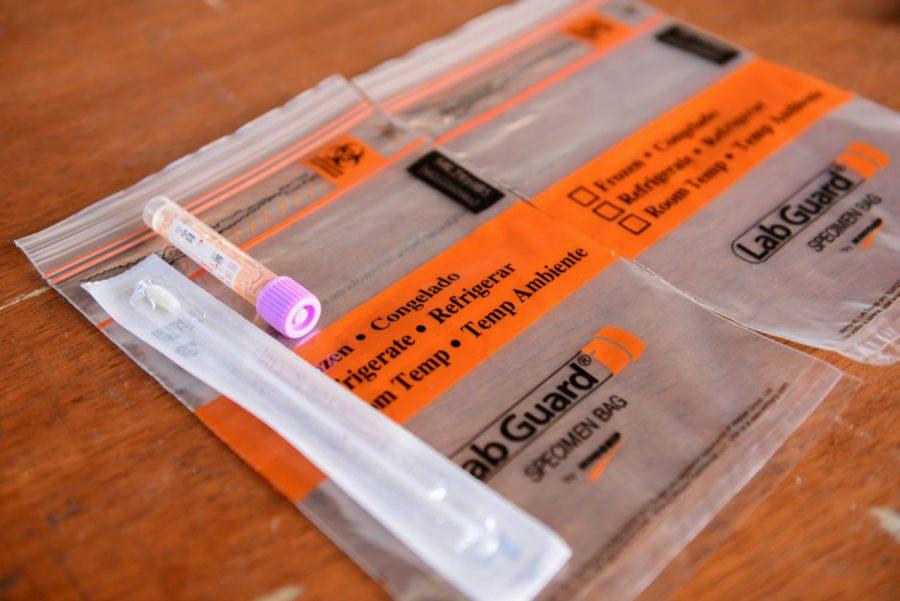Pitt adds 22 COVID-19 cases since Tuesday
March 12, 2021
Pitt added 22 new COVID-19 cases, composed of 21 students and one employee, between Tuesday and Thursday, with 33 students currently in isolation. The University’s previous case report, covering last Friday to Monday, included 17 cases.
This is the spring semester’s 16th case report and the first one after Pitt moved into the Guarded Risk posture on Thursday. This posture allows for most activities to be in person with virtual options and limited restrictions.
Pitt’s COVID-19 Medical Response Office said in a Friday evening email that since Tuesday, the five-day moving average of new cases per day “more than doubled.” It said while the average of five new cases per day is “relatively low,” the CMRO is “concerned” about the increase. The new cases are mostly from undergraduates living off campus, the CMRO added.
The CMRO also said students must continue to practice proper mitigation behaviors, such as wearing a mask and social distancing, to remain in the Guarded risk posture. It called this increase in cases a “wake-up call” ahead of St. Patrick’s Day.
“This is the time to be vigilant and keep our circle of close contacts small. We’re calling on everyone to continue to wear well-fitting face coverings (over your nose and mouth), keep 6 feet of distance from others and practice hand hygiene at all times,” the email said. “We are still in a pandemic.”
Allegheny County Health Department and state health officials have continued to report high case numbers. According to hospital data compiled by The New York Times, about 80% of ICU beds in the Pittsburgh area are currently occupied, compared with 76% statewide and 71% nationally. UPMC Shadyside is at 88% capacity and has 24 ICU beds remaining.
The University has had 1,040 students and 211 employees test positive since June 26, with 1,007 students and 202 employees recovered thus far.
There are 33 students currently isolated at home or in Pitt’s isolation housing, which is reserved for those who have either a confirmed or suspected COVID-19 infection. Pitt has about 300 isolation beds.
Pitt implemented a systematic, random testing strategy, which involves testing several hundred students each week on Mondays and Wednesdays inside Posvar Hall. Out of 270 students without COVID-19 symptoms randomly tested on Monday, two were positive, increasing Pitt’s spring prevalence rate from 0.35% to 0.38%. The Student Health Center also now has the capacity to test 300 symptomatic students per day.
The Pennsylvania Department of Health has approved Pitt as a vaccine provider, but Pitt officials remain unsure about when they will receive doses to distribute. The CMRO said it’s important to fill out the vaccine survey sent in late January so Pitt is prepared to make appointments if it receives a supply.
The University also implemented a variety of new policies due to the pandemic during the spring semester, though some community members questioned whether the safeguards are sufficient. Students moved into dorms in four cohorts, beginning in late January and continuing into early February. Students needed a negative COVID-19 test before moving back on campus. Faculty and staff also have access to mail-in tests if they meet certain criteria.
Additionally, students are encouraged to shelter in place at least seven days before moving in. Once on campus, students are required to shelter in place again for at least 10 days or until the CMRO announces that it’s safe to move about campus. Students may attend classes during this time. Pitt also planned testing of students to monitor the virus’ spread, required students, faculty and staff to complete COVID-19 training and imposed strict penalties for violations of health guidelines.
Kenyon Bonner, the vice provost and dean of students, said student organizations who host a party or event can face suspension, and students hosting large parties can be suspended. Students living on campus who attend large parties can have their housing suspended for the semester, and students living off campus can be switched to persona non grata status, preventing them from entering University buildings or property.



